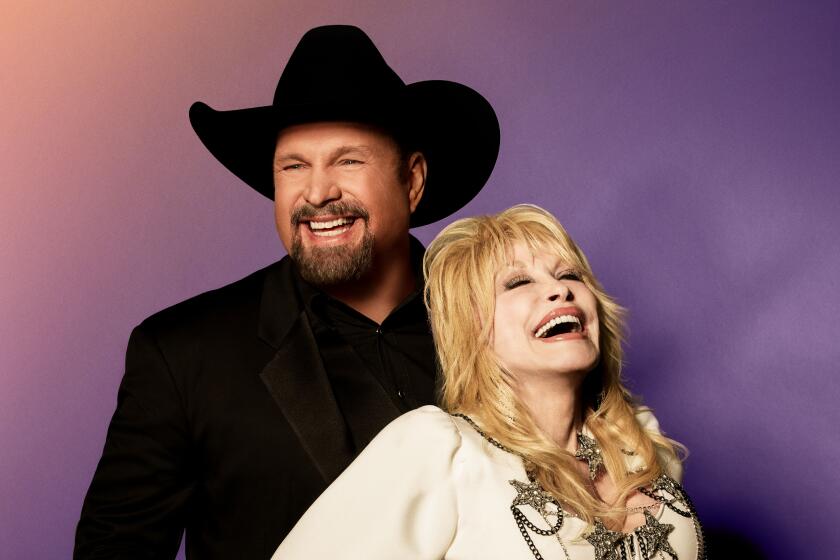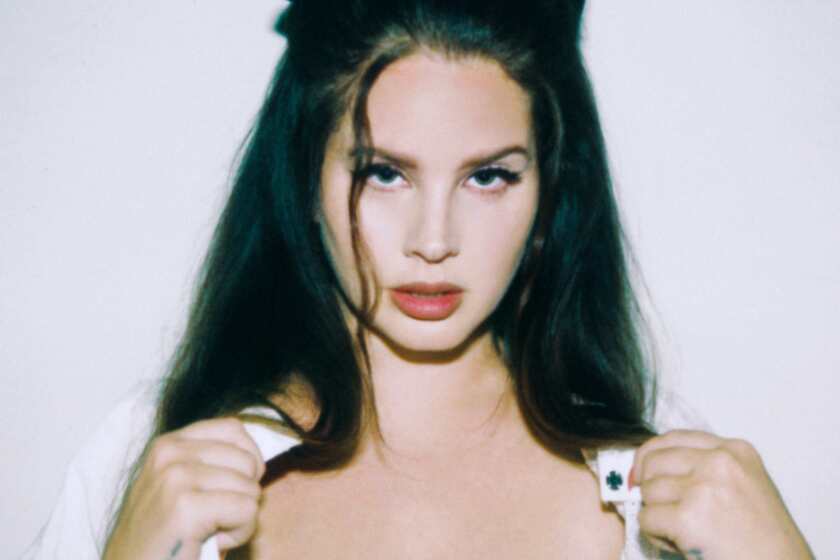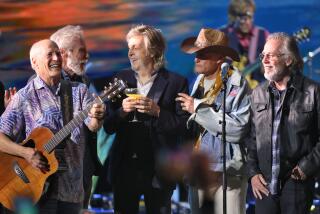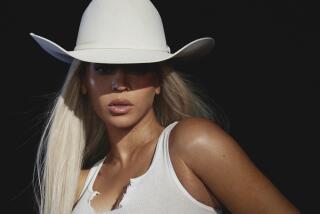Reba McEntire ‘disappointed’ in Tennessee anti-drag laws: ‘God bless ’em for wearing those heels’
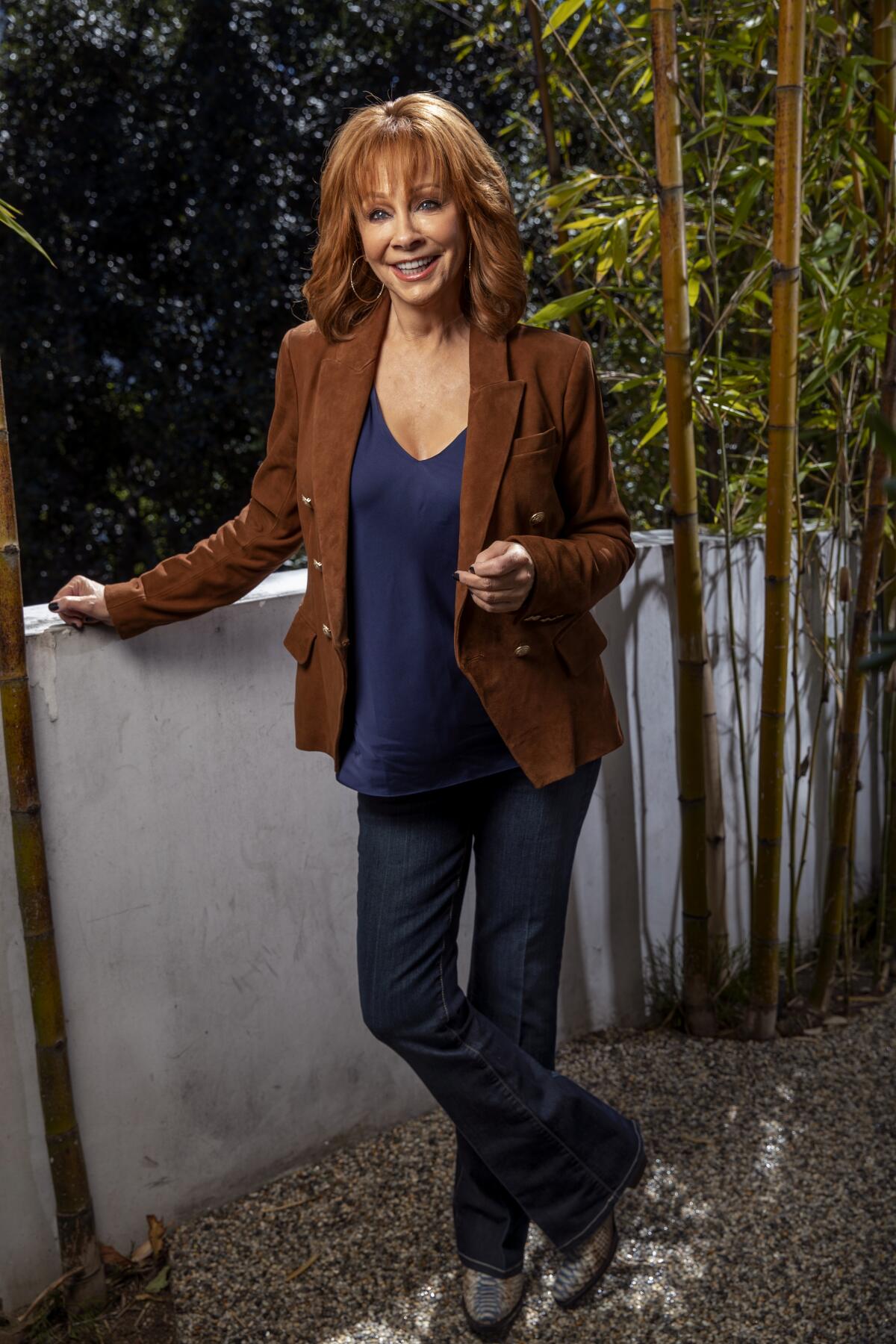
Reba McEntire has scored dozens of Top 10 country hits, starred in a much-watched TV sitcom, opened a restaurant in her native Oklahoma and taken home six Country Music Assn. Awards (including four consecutive wins for female vocalist of the year).
What the 68-year-old singer and actor hasn’t done is headline the Hollywood Bowl — an achievement she’ll finally nab Saturday when her latest concert tour touches down in Los Angeles.
A crucial bridge figure between the pioneering country singers of the 1960s and ’70s (Loretta Lynn and Dolly Parton) and the stars of today’s scene (Carrie Underwood and Miranda Lambert), McEntire made her name singing emotionally detailed songs about women’s lives. Yet her open mind and her sense of humor have also given her one-name-icon status far beyond the limits of country music.
Ahead of the Bowl show — as well as a gig mentoring contestants on “The Voice” that’s brought her together with her former daughter-in-law, Kelly Clarkson — McEntire sat down for a chat at the Sunset Marquis.
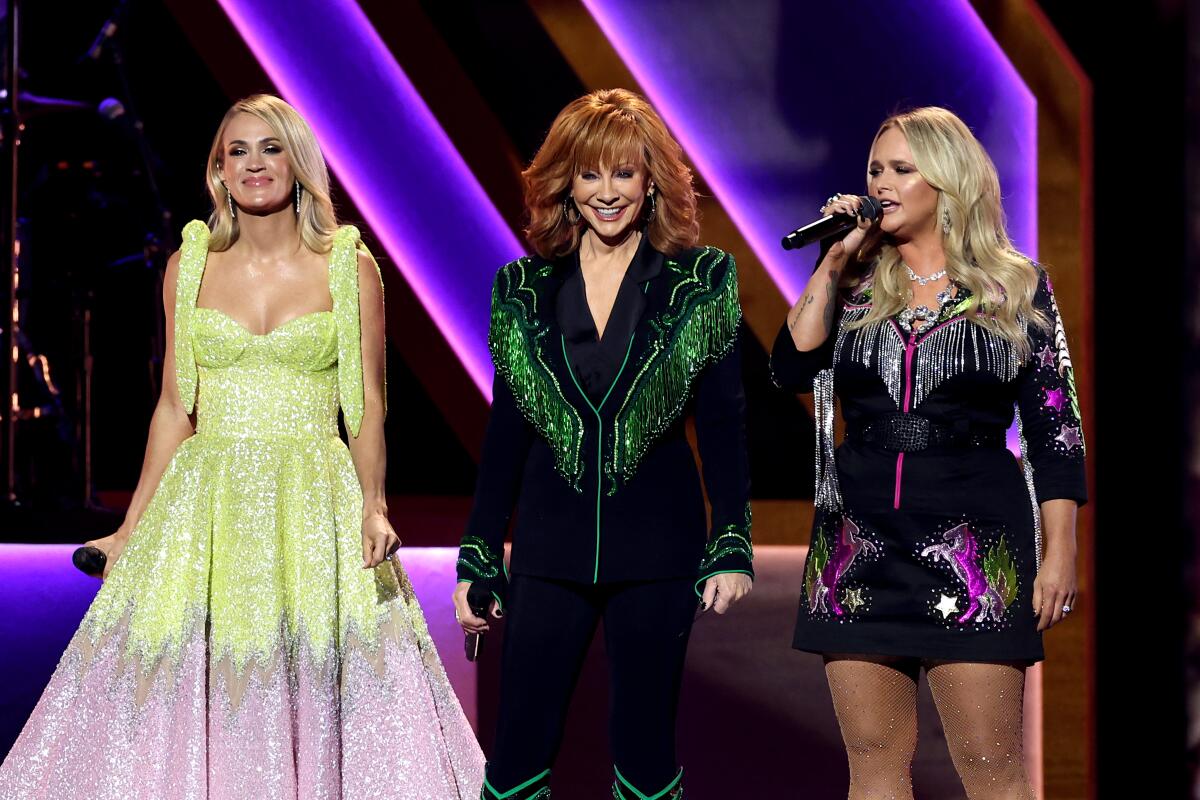
You have a lot going on. Why continue to tour?
The reaction from the crowd. When you’re up there and you get that adoration coming at you so loud — it’s a drug.
You haven’t gotten your fill?
Well, that’s why it’s like a drug. You want another fix, then you want it again.
What’s the best live act you’ve ever seen?
The Eagles. Cher. Taylor Swift puts on a fantastic show.
What do you try to teach the young performers on “The Voice”?
Eye contact. Emotion. I don’t get into technique. Kelly does the trills and the runs and all this kind of stuff. I say, “I just want you to look at me when you’re singing.”
I wonder if fans ever find it overwhelming when you do that at your shows.
I hope so.
Last year, Lambert and Elle King had the first female duet to top Billboard’s Country Airplay chart since you and Linda Davis in 1993 with “Does He Love You.” How should we think about the climate for women at country radio?
It’s definitely not as hard as when Tammy [Wynette] and Loretta and Dolly were getting started. And it’s not as hard for the girls now as it was for me when I got started, which was almost 50 years ago. We just wanted to be heard, and now the girls walk in and say, “I want it this way,” and it’s a given.
Any younger artist you see a bit of yourself in?
I love Ashley McBryde’s emotion, her heart. She’s a great storyteller, and she really commits to a song.
Is there a difference in the way Nashville handles women as they age versus men as they age?
I haven’t been snubbed because of my age. In fact, I’m busier now than I’ve been in years. I like to keep busy. I also love to stay at home. But I got a lot of that during COVID.
The Academy of Country Music has tapped Garth Brooks and Dolly Parton to host the 2023 ACM Awards, streaming May 11 on Amazon Prime Video.
You spent some time early in the pandemic in Oklahoma, where you grew up. Your mother was dying of cancer.
My siblings and I, we were taking turns helping Mama. I was putting a tour together, and so I had to go back [to Nashville] at one point for rehearsals. They called and said she was getting really bad, and I said I didn’t want to be there when she passes. So Susie, my little sister, she called and said, “OK, she’s gone.” We flew back on the 15th of March [2020] to pick out the casket. That was a Monday, and we were gonna have the funeral on Thursday. The funeral home man, he said, “I don’t think you’re gonna be able to have this funeral.” We asked why, and he said because of COVID. I said, “What’s COVID?”
Why didn’t you want to be there when your mom passed?
I didn’t want to see her like that. Right before I left to come back to Nashville, I was sitting there beside her bed and she was asleep. I was singing to her, and she woke up and said, “Did you say something?” I said, “Mama, I was just singing my butt off to you.” She said, “Do it again,” and she went back to sleep.
What’s the best album you ever made?
One of my favorites is the [1995] “Starting Over” album, with the songs I wished I’d recorded first, like “Starting Over Again,” which was Dolly Parton’s.
You’ve recorded so many songs that you must have forgotten some of them.
Probably about four on every album. People come up to me before a concert and say, “Are you singing ‘Gonna Love Ya (Till the Cows Come Home)’?” I say, “Who recorded that?” “You did.” I say, “I guess not.”
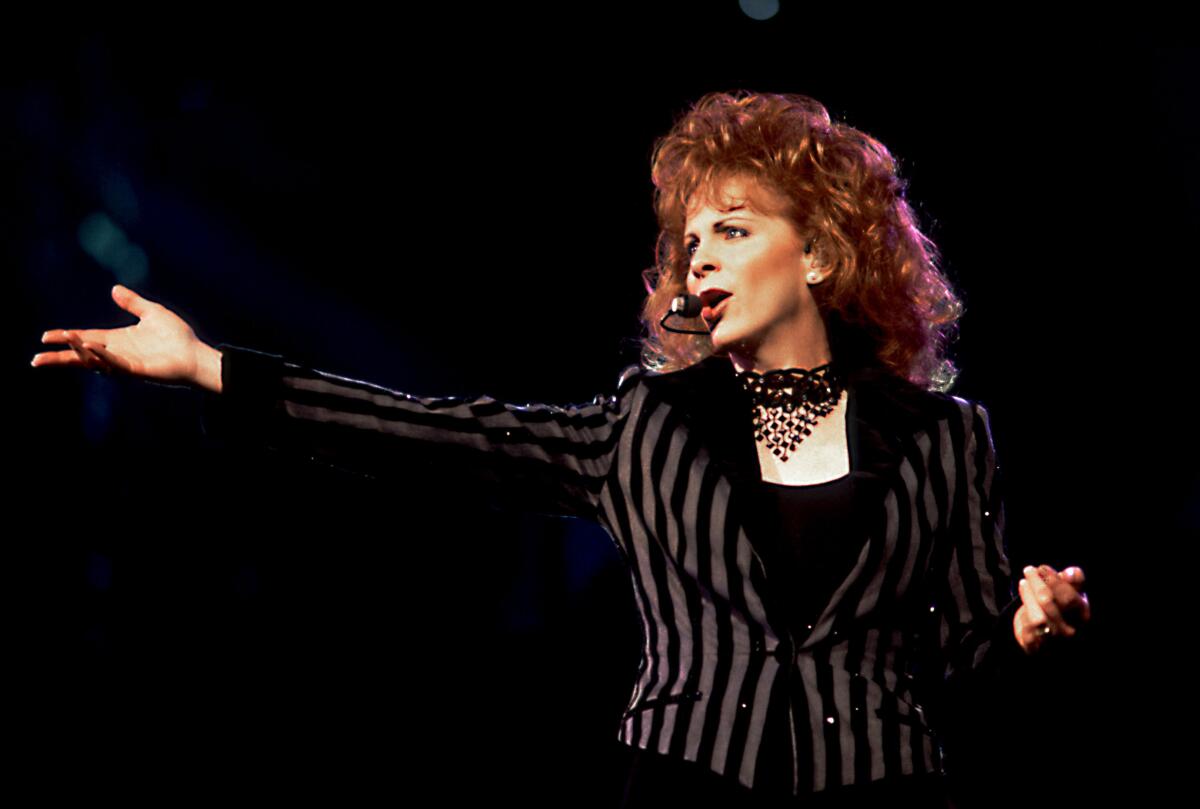
What’s it like to experience something in real life — divorce, for instance — after you’ve sung about it?
It’s like the knife’s in and somebody twists it a little bit. There’s a segment in my show that’s all the heartbreak songs: “You Lie,” “The Last One to Know,” “Somebody Should Leave,” “What Am I Gonna Do About You.” I’ll remember where I was when I recorded the song, what stage of my life I was in. And I’ll get choked up. I never have broken down to cry, but a part of that scar tissue breaks loose. It hurts.
Can you imagine breaking down some night?
I wouldn’t go that far. I can look at an exit sign and think about how you spell that backwards and get out of it.
Where’d you learn that trick?
Mama told me one time — she said, “Are you nervous?” I said, “A little bit nervous.” She said, “Look at the exit signs.” Takes you out of it for a little bit where you can take a breath, go right back into it. If you watch an actor, it’s always real good until they start bawling. One tear is so much more powerful than the ugly face.
On her sprawling and self-referential new LP, Del Rey’s lyrics deliver a staggering blend of the profound and the vernacular.
What do you think about the bill that Tennessee Gov. Bill Lee recently signed into law restricting drag performances in certain parts of the state?
I wish they would spend that much time and energy and money on feeding the homeless children in those two counties.
Were you surprised the bill passed?
Disappointed.
You’ve been around long enough that I have to assume you’ve known plenty of politicians in Nashville and in Tennessee. Ever get involved in a race or a campaign?
I don’t do politics. Never have. My job is to entertain. I’m not there to influence people one way or another how to vote.
And yet you know your take on the drag bill is potentially alienating to some in your audience.
Boy, why? I mean, we’ve got a real problem in this country, and to be worrying about men wanting to dress up as women? God bless ’em to wear those high heels — I feel for ’em. But let’s center our attention on something that really needs attention.
Maren Morris has spoken about country music splitting into halves along certain cultural and political lines. Can you identify with that view?
That does not apply to me. I try to stay away from disagreements and confrontations.

Are you proud of having cut songs like “Fancy,” about a prostitute, and “She Thinks His Name Was John,” about a woman with AIDS?
I’m very proud of the fact that I listened to my gut and said, “This is a good idea.” No. 1, they’re great songs. I went in to Bluewater Music [publishing company] to listen to songs like I did before an album project, and as I was walking out a guy comes in the lobby and says, “Did you play her … ?” They whispered no. I said, “Play me what?” The guy goes, “Well, nobody else is gonna record it.” And I said, “OK, play it for me,” and they played “She Thinks His Name Was John.” I said, “I’ll take it.”
You liked the idea that it was kind of risky.
I didn’t think about risky. I thought, “This is a song about AIDS. I know nothing about AIDS, but I do know that it’s taboo.” You know when the booger bear’s in the dark, then you turn the light on and he’s not there anymore? I thought maybe that by singing about AIDS, I could shed some light on it and people would start talking about it and it would get it out of that scary place. It’s scary enough by itself without people having to think it’s scarier than it is.
More to Read
The biggest entertainment stories
Get our big stories about Hollywood, film, television, music, arts, culture and more right in your inbox as soon as they publish.
You may occasionally receive promotional content from the Los Angeles Times.
